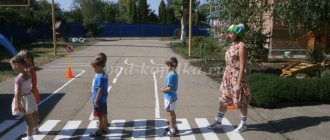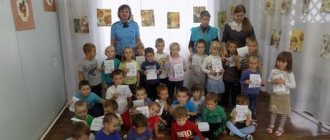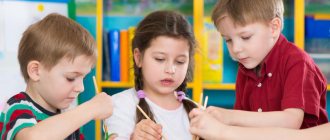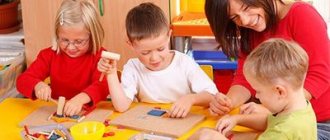Types of independent work
Types of independent work may differ depending on the location, as well as the nature of the tasks. Classroom and extracurricular activities are distinguished by location. But there are much more types of independent work by the nature of the tasks and they pursue different educational goals:
- preliminary study of the material;
- listening to lectures, finalizing notes;
- working with recommended sources of information;
- performing special tasks within the framework of the curriculum;
- preparation for tests, tests, seminars;
- preparation of abstracts, essays, their defense;
- preparation of reports and scientific research for presentation at conferences and seminars;
- analysis of scientific research and monographs on the subject.
Most of these types of independent work are mandatory. And additional tasks with an asterisk for the smartest are reports, research, analysis of scientific papers and presentations at conferences.
Levels of independent work
Look at examples of work and make sure that we will help you conscientiously!
“The execution of an automatic act does not give our mind any task. No difficulty means no need, and therefore no consciousness.”
This quote from Lev Semyonovich Vygotsky perfectly explains why it is important to take into account not only the types, but also the levels of tasks for students’ independent work.
Conventionally, all types of tasks are divided into three levels:
- reproductive;
- productive;
- creative.
To cope with a task of any complexity, you must remember to rest on time.
Reproductive level
These are tasks whose main goal and objectives are to consolidate existing knowledge. This includes reading various literary sources, adding and studying notes, and completing tasks similar to those that the student already knows how to solve.
Productive level
This is direct work with new material. The main goal and tasks facing tasks at the productive level are deepening knowledge, consolidating skills in practice. Types of tasks at this level:
- draw up an outline of the book;
- compile a bibliography;
- make diagrams, diagrams;
- prepare oral and written responses to questions;
- evaluate the written work of fellow students.
Creative level
The goals and objectives of independent work at a creative level are to independently seek knowledge, demonstrate independent thinking and the ability to analyze, as well as work with large and complex material. Objectives of this level:
- prepare an abstract;
- write an essay;
- conduct research;
- collect material and write a thesis;
- prepare and defend a report.
When choosing the level of tasks for independent work, remember that it should increase each time. This will strengthen self-confidence and increase professionalism.
Need to write an independent paper? Find out how to prepare for it quickly and successfully and by what criteria it will be assessed.
And if you need help preparing and writing any type of work, please contact our student service. Experts will cope with any topic, reveal it taking into account goals and objectives, and also take into account the type and level of complexity.
Principles, types and levels of independent work
In addition to goals and objectives, independent work has principles, types and forms, as well as different levels of complexity. Understanding them allows you to understand the methodological basis on which the goals and objectives of independent work are built, assess the level of complexity of tasks and track your own progress.
Principles of independent work
The following basic methodological principles of independent work are identified:
- focus;
- consistency;
- regularity;
- consistency;
- utility;
- scientific character.
This means that the goals and objectives of independent work, which the teacher pre-vocalizes and the student clarifies during the work, must comply with these principles.
Goals and objectives of independent work
What is the main difference between independent work and other types of work at the university?
This is an activity during which the student completes the task independently, without the direct participation of the teacher.
Additional features of this type of work often include the following:
- presence of a problematic problem that requires a solution;
- limited time to complete the work;
- mental effort in the process of finding a solution;
- conscious and independent approach of the student, activity.
It is these prerequisites that determine the main goals and objectives that independent work should solve.
There is an opinion that only that knowledge that a person has passed through himself and supported by independent activity becomes real skills and abilities.
Goals of independent work
Most often, the teacher sets the goals for students’ independent work. Depending on the subject being studied and the level of complexity, they may vary, but the main ones, as a rule, are the following:
- strengthen and systematize the knowledge acquired during the learning process;
- develop the ability to effectively work with scientific literature and other sources of information;
- independently extract knowledge and apply it in practice;
- develop critical thinking, analytical and research abilities;
- develop the skill of planning and organizing time;
- develop self-control and performance evaluation skills.
The ability to set goals and objectives, highlighting the main thing - a useful skill
Example: goals for independent work of students in the direction of “Diplomatic and Consular Law” of the specialty “Jurisprudence”:
- systematization and strengthening of students’ knowledge acquired during the study;
- formation of skills to use, apply, interpret regulations, analyze theoretical sources;
- formation of independent thinking, abilities for self-improvement and self-realization;
- development of research skills.
The determination of the content and main goals of students’ independent work is influenced by the requirements of the Federal State Educational Standard, curricula and programs of specific disciplines approved by the higher education institution.
Tasks of students’ independent work
If goals are the main, global vision, then tasks are specific steps to achieve them. They are determined by the logic of learning and help to break down the execution process into stages. What problems can independent work solve:
- repeat the material covered;
- deepen and assimilate new knowledge;
- consolidate theoretical information;
- summarize and systematize what has been learned;
- develop practical skills and professional abilities;
- apply knowledge in practice;
- solve specific tasks or cases.
Example: tasks of independent work of students in the direction of “Diplomatic and Consular Law” of the specialty “Jurisprudence”:
- master theoretical (fundamental) knowledge of diplomatic and consular law;
- learn basic concepts;
- study and analyze international treaties, customs and national legislation on diplomatic and consular law;
- solve problems and assignments proposed in the educational manual for practical and seminar classes;
- to form experience of your own search, creative, research activities.
By the way! Our readers now have a 10% discount on any type of work.
planning in the preparatory group
PLANNING EDUCATIONAL WORK for the week (10/11/2021-10/15/2021)
Group: 2nd preparatory group “Semitsvetiki”
Topic: “I am a man.”
Tasks
: 1. To develop in children positive self-esteem, self-confidence, awareness of the growth of their achievements, self-esteem, self-control and responsibility for their actions and deeds; 2. Form an idea of yourself as a person – representatives of life on Earth.
Final event
: “What did Pepsi-Cola and Water argue about?”
Date of the final event
: Friday 15.10.
Responsible for the final event: teachers, parents.
| Day of the week | Mode | Integration of educational areas | Joint activities of adults and children, taking into account the integration of educational areas | Organization of a developmental environment for children’s independent activities (activity centers, all group rooms) | Interaction with parents/social partners | ||
| Group, subgroup | Individual | Educational activities in special moments | |||||
| 1 | 2 | 3 | 4 | 5 | 6 | 7 | 8 |
| Monday | Morning | social-com. development; cognitive development; speech development; artistic and aesthetic development; physical development. | Complex of morning exercises “Fun exercises”. Develop children's dance and play creativity. D/ games “Valeology or a healthy baby”, “Collect a human figure”, “Guess by touch” “Amazing face” C: Formation of initial ideas about health and a healthy lifestyle. | “Columbus Egg” Consolidate knowledge of geometric figures, develop the ability to carry out visual and mental analysis of their location, | D/s: “Katya has a cold.” Goal: to teach children to turn away when sneezing and coughing and cover their mouth with a handkerchief. | Coloring pages "Children" Goal: development of graphomotor skills. exhibition of toothbrushes and toothpastes personal hygiene items for educational dolls | Talk with parents about the well-being of their children. Individual conversations and consultations at the request of parents. |
| Direct educational activities | Cognitive development of FEMP | Lesson 7. Program content. Continue learning to form the number 6 from ones. (I.A. Ponomareva FEMP, p. 31) | |||||
| Physical training | Lesson 15. Tasks. Exercise children in running and overcoming obstacles; develop dexterity in exercises with the ball; repeat the task while jumping. (L.I. Penzulaeva Physical education in kindergarten, p. 22) | ||||||
| Hood/est development drawing | “Dad (mom) walks with his child in the park (down the street)” P.S. Strengthen the ability to draw a human figure, convey the relative size of a child and an adult. (T.S. Komarova Fine Arts in kindergarten, p. 45) | ||||||




